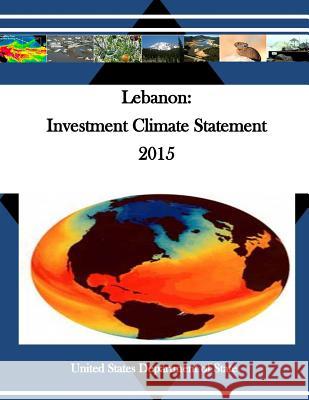Lebanon: Investment Climate Statement 2015 » książka
Lebanon: Investment Climate Statement 2015
ISBN-13: 9781530700936 / Angielski / Miękka / 2016 / 30 str.
Lebanon is open to foreign direct investment and has many advantages that have encouraged foreign companies to set up offices in the country. These include a free-market economy, the absence of controls on the movement of capital and foreign exchange, a well-developed banking system with strong financial soundness indicators, a highly-educated labor force, good quality of life, and limited restrictions on investors. According to the most recent Transparency International Corruption Perception Index, Lebanon is one of the 50 most corrupt countries in the world, and ranks 14 out of 19 countries in the Middle East North Africa region. Other issues that continue to cause frustration among local and foreign businesses include red tape, arbitrary licensing decisions, outdated legislation, an ineffectual judicial system, high taxes and fees, unreliable interpretation of the law, and weak enforcement of intellectual property rights. The ongoing presidential vacancy since May 2014 and the political divisions behind the delay in electing a new president have hampered the effectiveness of an already divided cabinet, where major decisions have been stalled waiting for elusive political consensus. However, the negative impact of the political stalemate on the economy has been somewhat compensated for by several Central Bank stimulus packages implemented since January 2013 that, combined, injected approximately USD 4 billion into the economy. That stimulus, in addition to increased domestic consumption of goods and services (in part from the presence of an estimated 1.5 million Syrians seeking refuge in Lebanon), helped Lebanon achieve GDP growth of two percent in 2014 (IMF). In 2015, political risk perceptions remain high, given the negative impact on the Lebanese economy of the continuing turmoil in Syria and the region, compounded by uncertainty over the vacant presidency and the country's security, which was tested by extremist attacks in 2014 and 2015. As a result, many investors have maintained a wait-and-see attitude. Although the public deficit dropped by 27 percent in 2014, it remains an issue of concern for investors, but given the high liquidity in the domestic banking sector and continued growth in deposits in private banks, the Government of Lebanon (GoL) should not face difficulties in financing its deficit and rolling over sovereign maturities coming due in 2015. The Central Bank continues to publicly assert that it will maintain monetary and financial stability - reassuring investors that there will be no debt defaults and no currency depreciation. In April 2015, the rating agency Standard & Poor's affirmed Lebanon's "stable" rating. The business climate will remain sensitive to domestic and regional political and security developments. Spillovers from the Syrian crisis will continue to impact growth, which is expected to remain below potential until a positive resolution in Syria. In addition to political divisions, elite satisfaction with the status quo has blocked structural reforms and legislation to stimulate growth, encourage private sector development, and create jobs. The World Bank currently rates Lebanon 104 out of 189 in the ranking category- Ease of Doing Business. While the World Economic Forum's 2015 Global Competitiveness Index, ranked Lebanon 113 out of 144 worldwide. Lebanon is keen to attract U.S. investment because of its state-of-art technology, know-how, and competitiveness. Significant potential opportunities for U.S. companies exist in the energy sector, namely oil and gas exploration and power production. However, the first bid round for offshore oil and gas exploration has been delayed due to political differences and as of May 2015, no new date has been set. By 2020, Lebanon intends to be in a position to rely on renewable energy for at least 12 percent of its energy needs, a good investment opportunity for U.S. companies.
Zawartość książki może nie spełniać oczekiwań – reklamacje nie obejmują treści, która mogła nie być redakcyjnie ani merytorycznie opracowana.











